After a devastating breakup, I moved from Brooklyn to West Virginia to rebuild a life. Then I got lonelier than ever.
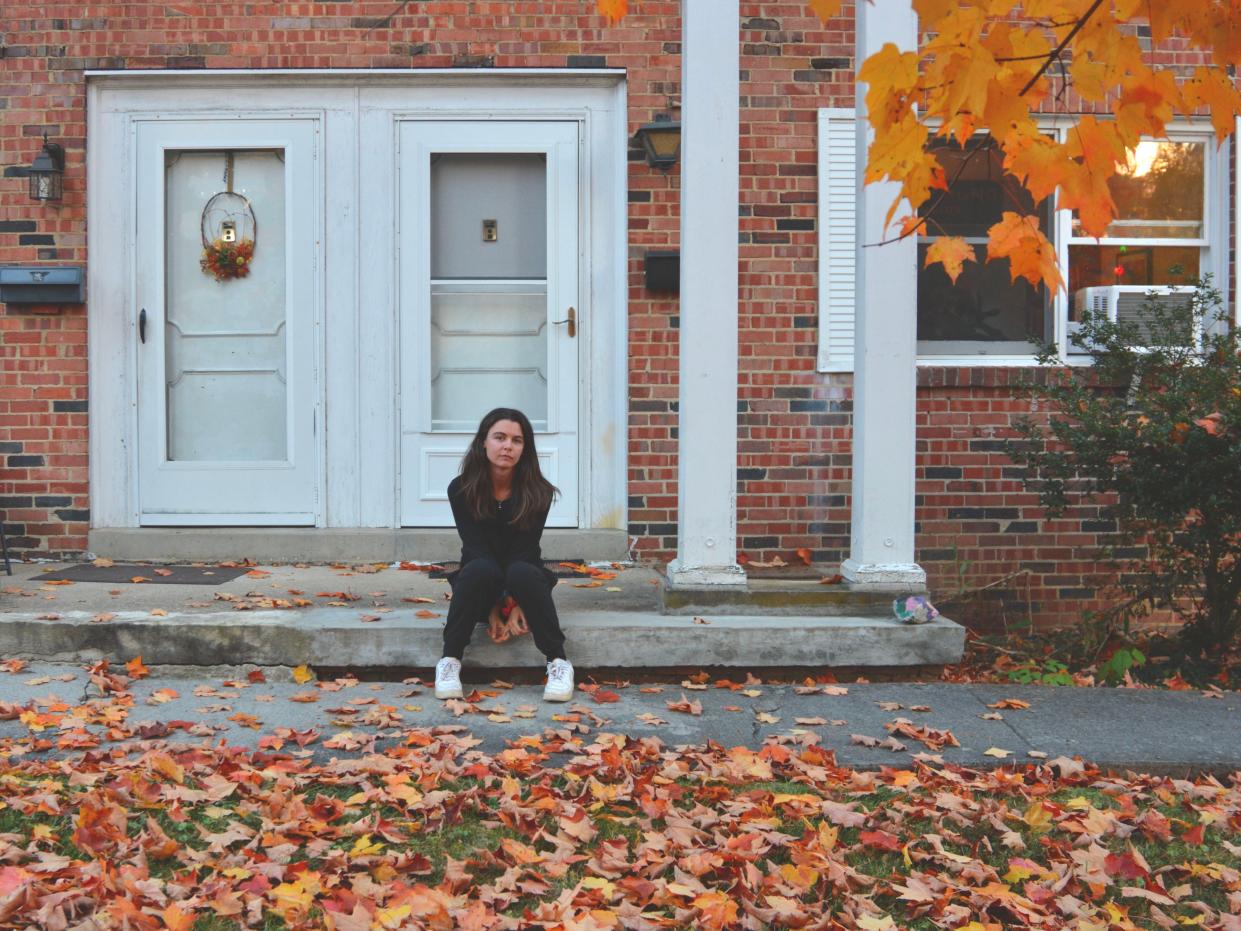
My relationship of four years failed the pandemic test, and I moved from Brooklyn to West Virginia.
Huge swaths of unfilled time forced me to confront loneliness and depression like never before.
Here's how I imperfectly remade a life in a virtual world.
I met my ex-partner on a bus at a bluegrass festival in North Carolina, the first time I ever deliberately said hi to a stranger. Throughout our four-year relationship, that always gave us a comforting sense of predeterminism.
We both saw things in each other that we didn't have as individuals. He was more obviously kind than me, caring to the point where I never had to question it or ask for more. I grew up in a difficult family situation, so this was like medicine. His appreciation of the little things — weather, food, YouTube videos — dragged me, kicking and screaming, out from behind my walls.
For my part, I think I offered him a sense of direction. He admired the way I struggled, scared and serious, to create a role in the world, and he wanted to help. I needed all variations of help. He's the only reason I paid my taxes on time.
Like many couples, we got through the hardest times of the pandemic only to break up once society bounced back.
He blamed our decline on the virus. And it's true that we never really "did New York" in the way it's meant to be done by 20-somethings with no discernible responsibilities.
But I didn't blame COVID. If we couldn't find joy when there was none to be had, I figured we failed the pandemic test.
That conclusion put me on a lonely path.
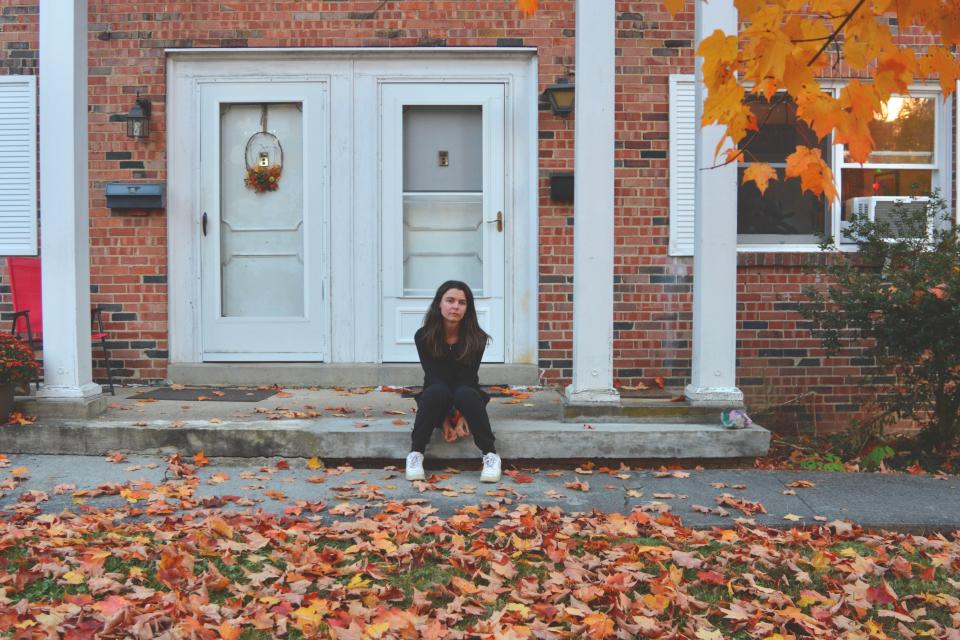
We moved in together and 6 months later, the world shut down
After two years of long distance — I was finishing college; he was working in Pittsburgh — we moved to New York in the summer of 2019.
I was looking for jobs in journalism. He was in finance, at a new gig, and stressed more than he cared to admit about my prospects. We had no idea what we were doing. By some miracle, we landed in a 400-square-foot box perched high above the southwestern corner of Brooklyn's Park Slope. The tall glass windows, in theory, allowed people in nearby buildings to see us, which he hated. But they also let in orange light from sunsets over the East River, which he loved.
As the city started to close in March 2020, we fled to Maine, where we sat through stubbornly cold and dark months, then Michigan, where the sun finally came out. Over this period, we learned how to be goofy. One night I put an empty box of Lacroix on my head, an essence-of-lime-flavored crown, while we watched DVDs. We returned to a much-changed city in the fall.
Over more than two years of working from home, our friendship unquestionably blossomed. Just feet away from each other at any given moment, we became fluent in the language, cadence, and stressors of each other's jobs, which unfortunately always came first. Every time I got a "scoop," he would play Snoop Dogg's "Drop It Like It's Hot," then faithfully monitor Bloomberg for any mentions of it. He was always on the phone, moving millions of dollars around, and his career took off like a rocket ship. I still have videos of him spewing bank gibberish over the phone.
"In terms of traunching, we're targeting a billion-and-three's and five-hundred-and-seven's," he said in April 2021. "We're flexible in terms of the fixed float."
But our romantic connection suffered as our differences grew louder. I felt alone interrogating life; he felt alone savoring it.
On New Year's Eve, 2021, I wanted to watch re-runs of Battlestar Galactica and make cosmos, like a weirdo. He wanted to go out with friends and have fun, like a normal person.
When the world restarted, we didn't. He was ready to escape the "heavy" atmosphere I created. I was hopeful, I think, to find someone who more readily embraced it.
The breakup was devastating. After the conversation, I went on a four-hour walk, numbly meandering through Brooklyn. By the time I came back, he'd put a bouquet of red roses on the kitchen table. The three weeks until I moved out were like that, defiantly kind.
I've only seen him one time since. We sat on his — formerly our — stoop in Cobble Hill. It was a cold, February weeknight. His grief had been sharp and fast. Mine had stretched out like a chronic illness. But we both had new wrinkles under our eyes.
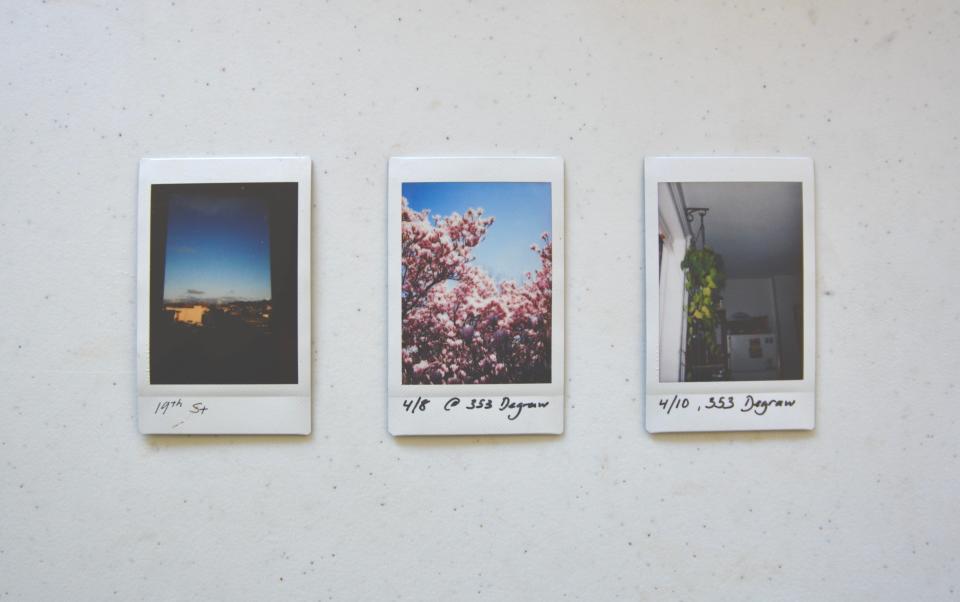
In West Virginia, I had to face unfilled time
He kept the anthurium. I put the orchid, philodendron, and cactus in the passenger seat of a 10-foot U-Haul truck and headed south.
Driving over the Verrazano Bridge, the orchid, a cherished gift from my aunt, had a parting view of Manhattan.
I stayed in my friends' guest room in Durham, North Carolina, for a while, sharing the space with their curious rabbits. Then, I moved into half of a duplex in Morgantown, West Virginia, a small town with an outsize appreciation for football.
I placed the orchid inside a windowed structure in the kitchen. The hot summer sun immediately burned two black wounds in its leaves. Between that and the trauma from the trip, the flowers, stems, and, finally, the main trunk all withered and died.
The plant became a measure of time. I stacked books under a little blue table so it could reach the refracted light from a south-facing window in my bedroom, and I watered it on a schedule. When it started to turn the sunspots green, I became hopeful we could both survive this.
I wasn't entirely sold on West Virginia. But I fell for someone. However terrible the timing, we first met in high school, so he had the unfair advantage of my decades-old crush on him. Now there's a coal miner on my driver's license.
He had to get through the first, hardest year of a medical residency. I had to face my grief and huge swaths of unfilled time.
I'm a recovering-workaholic introvert. Once here, my phone stayed quiet — evidence, I feared, that I had taught everyone to forget about me. By the afternoon on many Saturdays, a physical pain with a panicky edge would lodge in my chest. In my mind's eye, I would see the faces of the people I loved, but stop myself from calling. Was there not something cheap and unkind about waiting until a crisis?
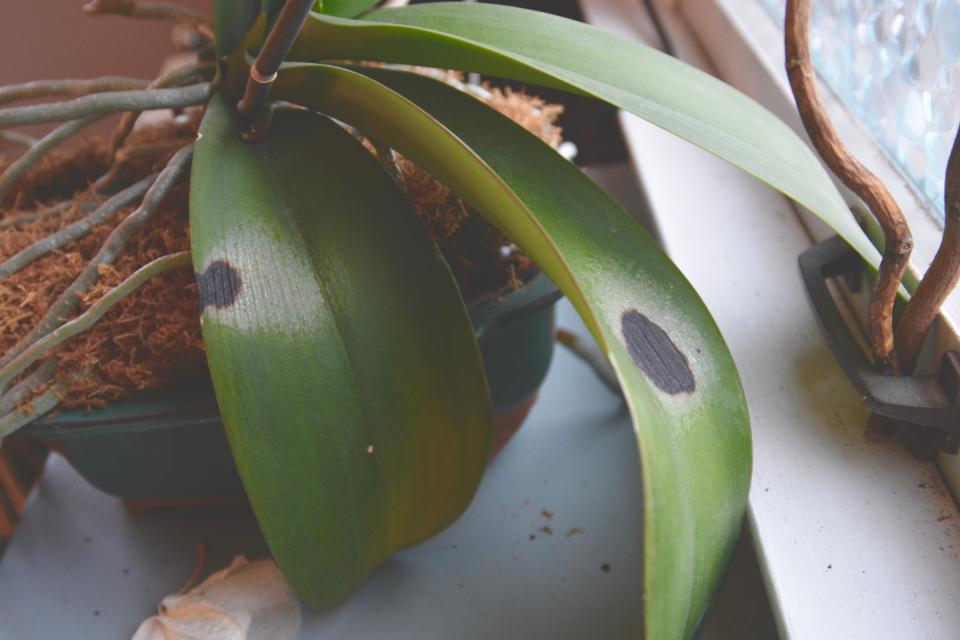
Loneliness, depression, and fragile joy
I remember the moment I realized I had depression, sometime last fall, I actually laughed out loud. I was using a timer to force myself to work in 10-minute increments, while not wearing pants, in mid-afternoon. The inner dialogue went something like: "Oh, you think?"
I was the image of grace — always home, ordering groceries over InstaCart, in the same pair of black, nonrigid pants. As often as I let clothes pile up on my bed, I picked fights over nonexistent threats, trying to find the upper limit of my new partner's tolerance. Never finding it, I fearfully retreated anyway.
I've had transcendently happy moments, too.
I try to care for my new partner the way my old one cared for me. His rich, slightly negative — "heavy," if you will — internal world is a lot like mine. But I wash his socks and tell him it's OK. And through our connection, we can make something out of nothing.
He taught me how to snowboard, dance, and hit someone in the butt with a kitchen rag. In the absence of a "scene" here, we invented Walmart dates, where we walk around the store without an agenda. Once, in December, we wandered into the Nerf-gun aisle. When we got home, he beat me in an epic clash, shooting me squarely in the forehead with a foam projectile. "Got your ass," he said. We giggled on the floor.
Joy is fleeting. It's how we're designed. But when I look back over the past year, it's sad to see moments like this, where I could believe that things were OK, give way to a machine of fear.
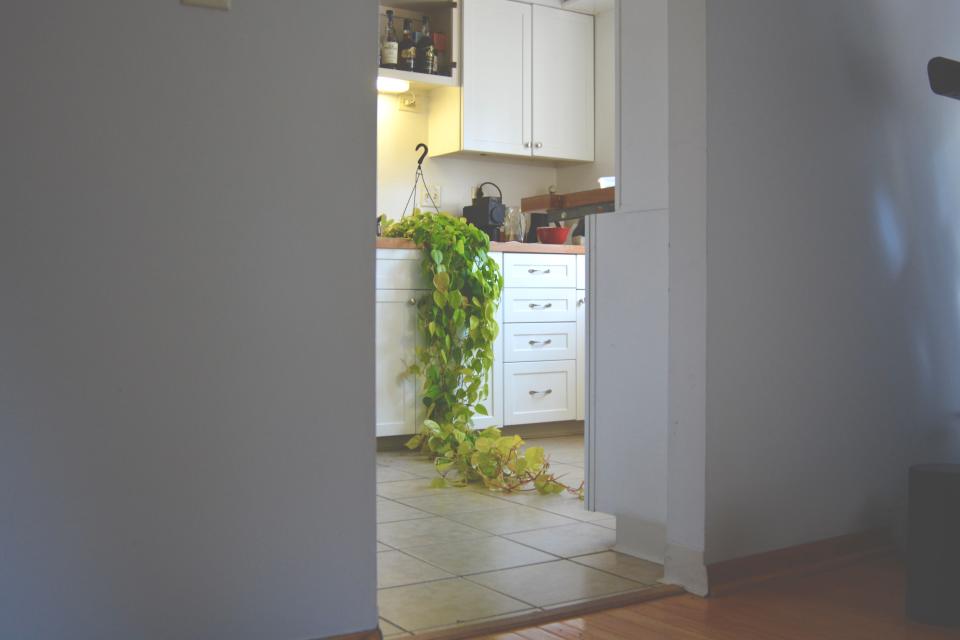
I forced myself to tell people that I cared
Apparently, there's a loneliness epidemic. I suppose that is mildly comforting.
Those of us experiencing measurable levels of it — about one in two Americans, according to research sponsored by Cigna — can thank a few societal trends, at least in part. For one, we move around more often, fracturing communities.
I'm part of a generation of workers who graduated from college to start their careers through a screen. Our older colleagues celebrated their newfound flexibility while we faced questions we weren't ready for, like where to live and how to build a personal social fabric. For the most part, I didn't make "work friends;" I made "Slack friends."
Slowly, imperfectly, and with my injuries, I've tried to swim upstream. I joined a soccer team. I bought flights and train tickets, and a typewriter to write little creative bits. I still struggle to be consistent, but I have checked in on my friends and family more. I told a few of them explicitly that I was sorry for losing touch and that I cared. Forcing the words out left me a tearful wreck. But most of them didn't know what I meant. Outside my dark hole, other people were too busy living their lives to resent me.
In mid-July, one of these conversations led to week-long stay in New York. A friend had taken me up on an offer to dog-sit.
While there, I invited a boss in my newsroom to coffee outside One Liberty Plaza. I was struggling with burnout and nervously confessed to a lack of burning desire about what to cover.
I thought he might weigh in on the biggest stories in the healthcare industry, which I still cover as a business journalist. Instead, he said life is like a house with locked rooms. You follow your curiosity with tiny steps into new experiences, picking up keys that let you return to those rooms thereafter. You don't solve problems with The Big Answer; you experiment until one day they're already solved.
As I trekked to the airport the following Saturday, I had that familiar feeling of rediscovering that maybe things were OK the whole time. Could I not hold onto that feeling for longer, like a prayer?
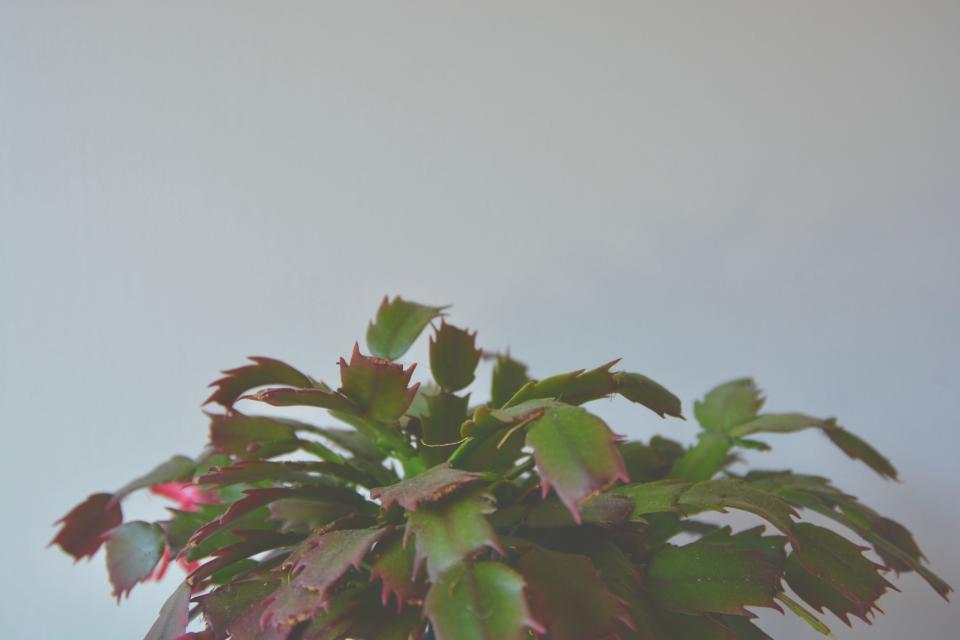
I'm still trying to change my mind
Swimming upstream can look like working to change your circumstances. But most of my work over the past year has been about changing my perspective.
Many of the commonly cited studies in today's discourse about the loneliness epidemic rely on surveys. Those surveys ask respondents not just about their isolation but how they're experiencing themselves and the world around them.
"How often do you feel that there is no one you can turn to?" a common survey question asks, continuing: "How often do you feel that people are around you but not with you?"
The pain that found me many Saturdays in Morgantown could follow me anywhere, from the crowded pit of a Rüfüs Du Sol concert to a campsite for two nested perfectly by West Virginia's Cranberry River. There was always someone to turn to. But it didn't always feel like it.
I started to call it my "original wound."
My therapist, who I need to return to, used to call it "mom and dad stuff."
I had a privileged childhood, in a sense. I never wanted for stuff and experiences. But I could have used more TLC.
My mom and I have only recently started to build a relationship.
On a cool evening this September, I went with her to an Alcoholics Anonymous meeting. The topic of the day was forgiveness, or, as one attendee put it, "live and let live."
It was my last night in our hometown, a coastal tourist trap that grows on you with age. The ever-present wind was whipping up sand in the parking lot. After the meeting, we sat in her car to talk. I can't remember ever doing that before.
She told me about her own original wound, a pain that came her way too young. She never learned to contend with it. She would choose alcohol, afraid to feel. Now she chooses faith.
I asked her if I could write about all this.
"I'm hoping maybe, it'll help someone," she replied.
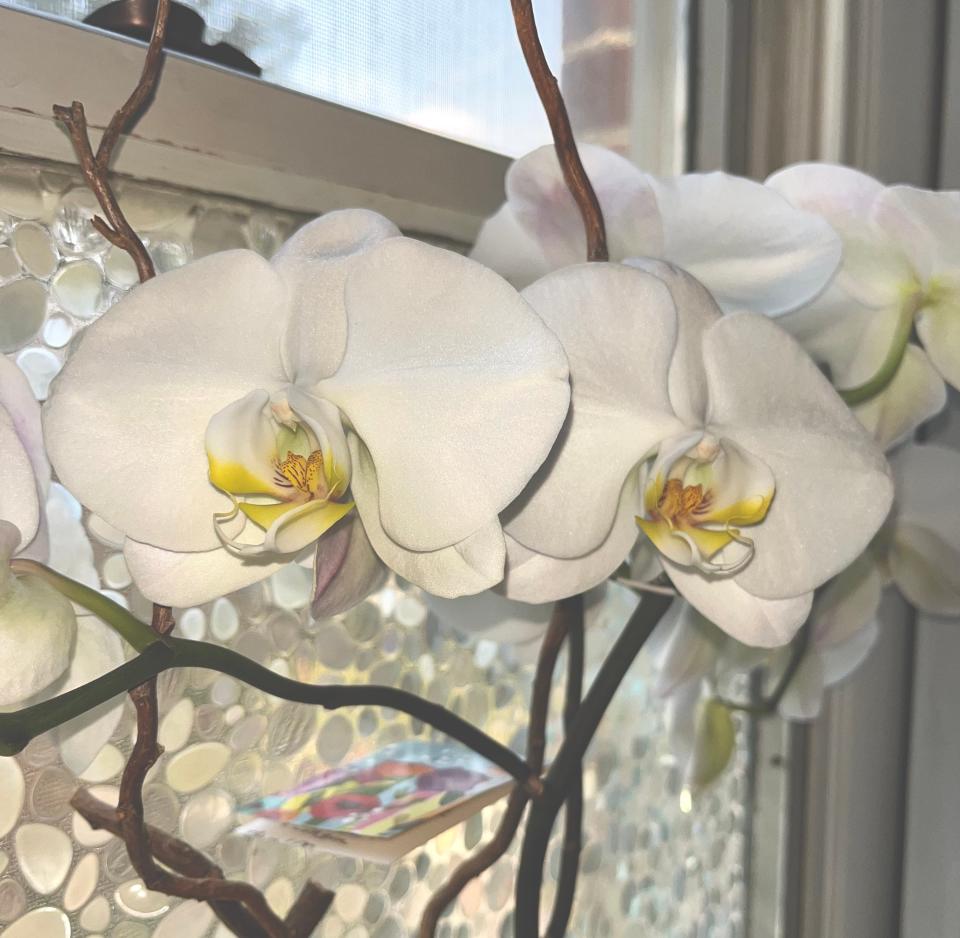
I wonder about other people like me. Is it just a crisis of loneliness that we're facing, or is it also a crisis of faith — in ourselves, in the meaning that underpins existence, in each other?
My orchid grew a new trunk, followed by stems that made 15 flower buds, more than ever, followed by flower after flower, silky and smooth like sheets of cotton shining with a damp film.
Just when I started feeling outpaced by its recovery, all the flowers wilted. It was that time of year. But it grew a new leaf, and it's working on another.
It was always two steps forward and one step back.
Do you have a tip about the modern loneliness epidemic that you'd like to share? Contact Blake Dodge at bdodge@insider.com
Read the original article on Insider

